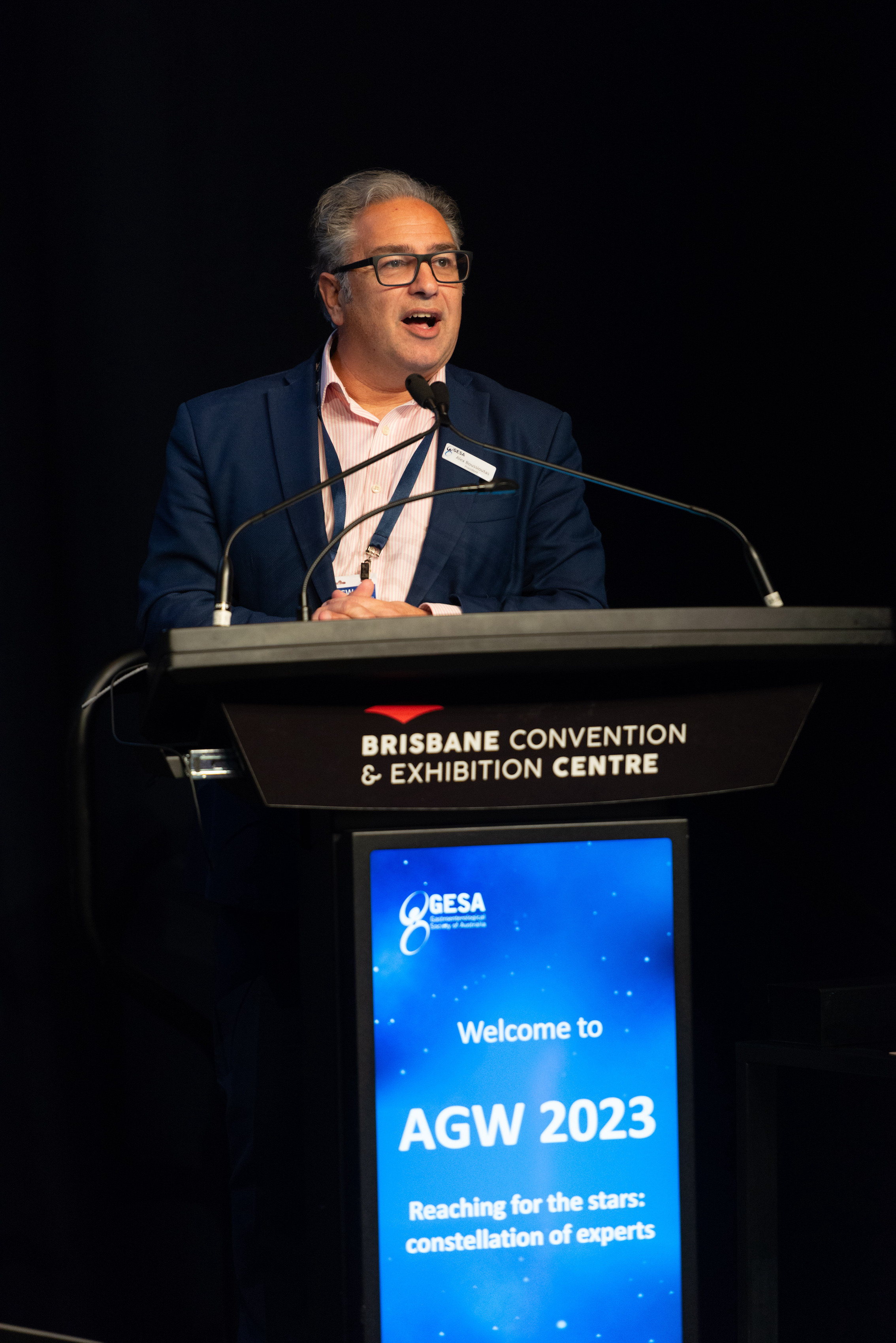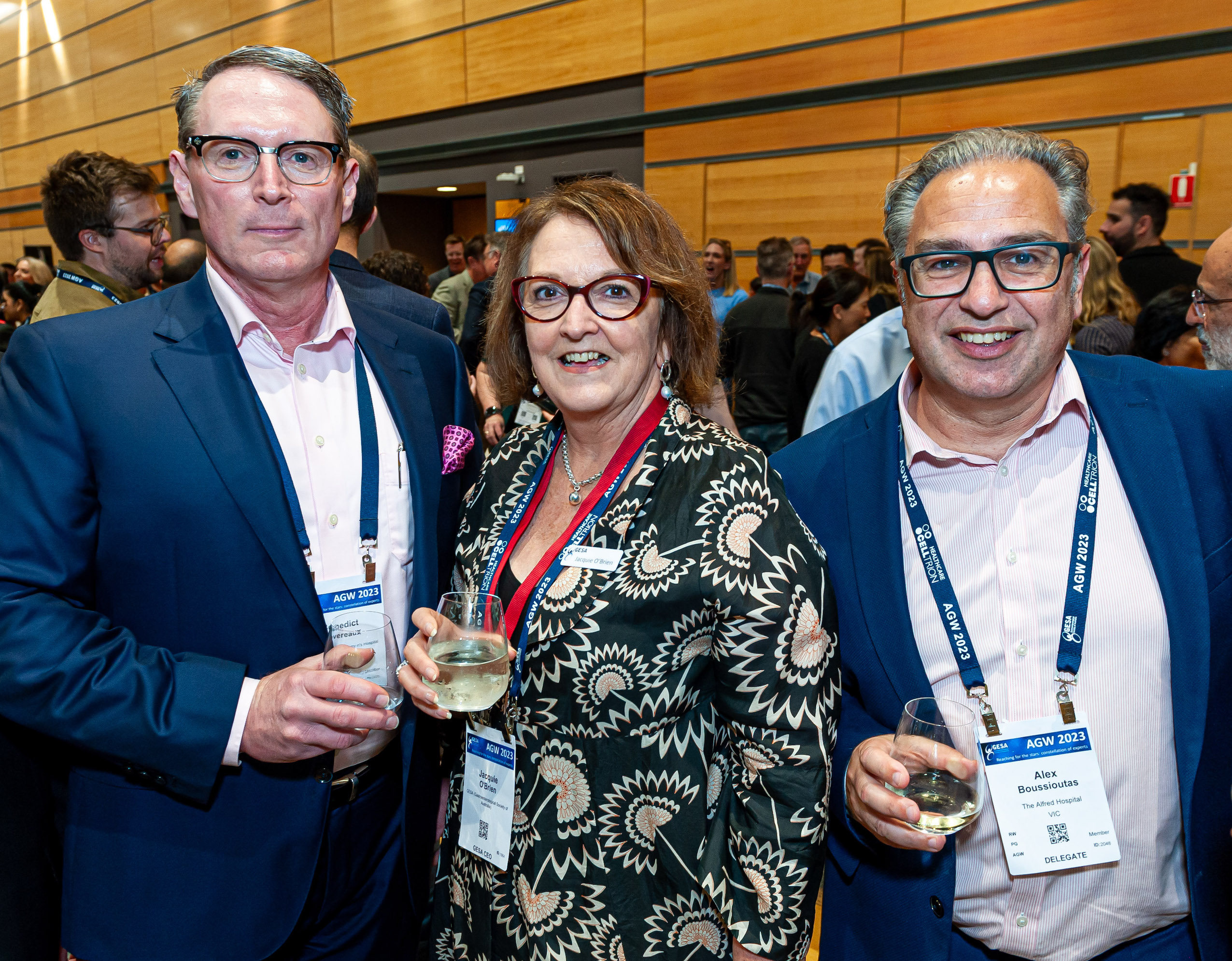
Professor Alex Boussioutas
The new GESA president Professor Alex Boussioutas laughs about the length of his email signature and whether he can fit in another line acknowledging the latest addition to his roles and responsibilities.
Jokes aside, he told the limbic that the sum of his experiences – as a clinician, researcher and academic, with previous board experience – has suitably prepared him for the challenges of leading the Society for the next two years.
Professor Boussioutas is currently Director of Gastroenterology and Director of Clinical Genetics and Genomics at The Alfred, Head of GI Risk Management at the Peter MacCallum Cancer Centre, and has affiliations with Monash University and the University of Melbourne.
The upside of adding to his load is that he expects to get as much out of donating his time, energy and expertise to GESA as he is likely to put in.
“I find it enriching. Collectively, I can use all that knowledge to improve where we are and to actually move our society forward. I’m a forward looking person… and I’m really keen to actually make things happen and facilitate change. So as long as I’m doing that, and it’s change for the good, then I’m happy,” he said.
He’s very appreciative of the work of the previous board members under the leadership of Professor Ben Devereaux which involved some tweaking of the governance structure and, just two months ago, the appointment of GESA’s new CEO Jacquie O’Brien.
“And that gives us the freedom to now start looking at what are our strategic goals – so where are we going? What are we doing in education? What are we doing in research and how can we facilitate that?”

GESA immediate past president Prof Ben Devereaux, CEO Jacquie O’Brien and president Prof Alex Boussioutas at AGW 2023
Research concerns
“There’s a concern around the country that there’s been some diminution of academic leaders or people who are training in gastroenterology and are doing higher degrees.”
“I need to do a little bit more research about the actual facts around this but anecdotally, there’s been a few people from other states that have actually said that there’s less of their trainees doing higher degrees and … the worry is, where’s the next generation of academics or academic supervisors?”
Professor Boussioutas, a former Associate Dean of Graduate Research at Melbourne University, said it’s a concern he’s taken seriously and ties in with a bigger discussion around career pathways for young gastroenterologists fresh from their training years.
He said there was unfinished piece of work for GESA in providing support in “the vacuum” immediately following training or “taking up where the College leaves off”.